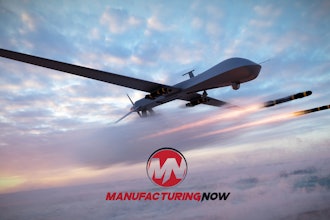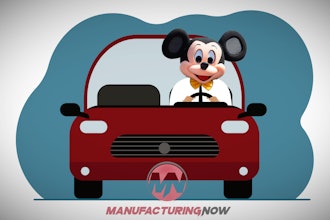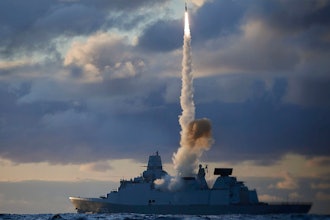From the Signing Ceremony for the Miscellaneous Tariff Bill
John Engler, President of the National Association of Manufacturers, commented after President Obama signed H.R. 4380, the Miscellaneous Tariff Bill, into law:
“Manufacturers are pleased that President Obama signed the Miscellaneous Tariff Bill into law today, which will provide a needed boost to both large and small companies. The NAM has been working relentlessly to educate Congress on the importance of this bill and how it will preserve and expand good American jobs. This legislation will also cut the costs of doing business in the United States and boost American manufacturing exports. In fact, studies show that these provisions can increase production by $4.6 billion and support almost 90,000 jobs.”
President Obama greeted our attendees at the White House signing ceremony, Ryan Modlin and Doug Goudie, thanking them for the NAM’s efforts on behalf of the bill. Likewise, Mr. President. Thank you.
- White House blog, “Another Step for American Manufacturing,” with video.
- Transcript of President’s remarks.
- Bloomberg, “Obama Signs Law to Suspend Duties on Imports of Products Not Made in U.S.“
- Washington Times, “Obama signs tariffs bill to aid manufacturers“
- Reuters, “Obama signs bill to ease U.S. manufacturers’ costs“
The Miscellaneous Tariff Bill extends the temporary reductions or elimination of tariffs on materials, chemicals and other items used in U.S. manufacturing but not available here in the United States. It’s traditionally a very popular bill that passes overwhelmingly when standing on its own. (Shopfloor, “Miscellaneous Tariff Bill, a Popular History.”) Still, we appreciate the extra attention the legislation received this year for sharpening the policy focus on the importance of trade and exports to reviving the U.S. economy, especially the manufacturing sector.
The NAM recently released its “Blueprint to Double Exports within Five Years.” The importance of bilateral trade agreements is prominent in the report, and the call for their enactment is shared widely in industry. As Bloomberg reported:
The Association of Equipment Manufacturers welcomed the legislation as a “small step to leveling the playing field for equipment manufacturers that seek to export American-made products.”
But the industry group also urged the U.S. Congress to “take immediate action on substantive manufacturing policies,” such as ratifying free-trade agreements with South Korea, Panama and Columbia.























